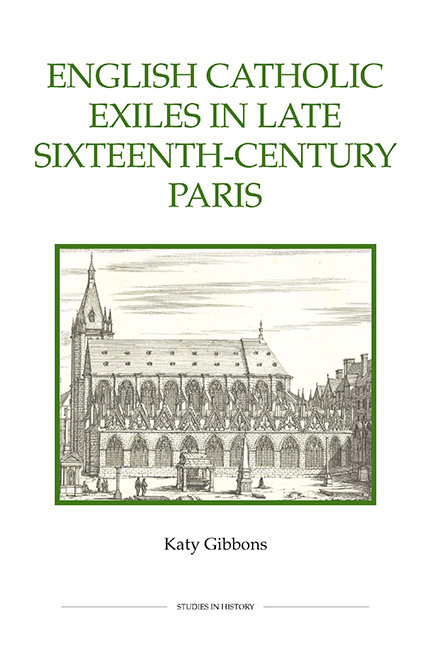Book contents
- Frontmatter
- Contents
- Acknowledgements
- Abbreviations
- Editorial conventions
- Introduction
- 1 The home and host contexts for Elizabethan exiles
- 2 Between civility and piety: exile niches in an urban environment
- 3 Exile in action: communicating and propagating the cause of radical Catholicism
- 4 Making sense of exile: alternative and competing representations
- 5 Returning or remaining? Divisions and longer-term developments in English Catholicism
- Conclusion
- Bibliography
- Index
Conclusion
Published online by Cambridge University Press: 11 May 2017
- Frontmatter
- Contents
- Acknowledgements
- Abbreviations
- Editorial conventions
- Introduction
- 1 The home and host contexts for Elizabethan exiles
- 2 Between civility and piety: exile niches in an urban environment
- 3 Exile in action: communicating and propagating the cause of radical Catholicism
- 4 Making sense of exile: alternative and competing representations
- 5 Returning or remaining? Divisions and longer-term developments in English Catholicism
- Conclusion
- Bibliography
- Index
Summary
On 22 March 1594, the day that Henri IV regained Paris from the Catholic League, action was taken to respond to English demands. According to L'Estoile, ‘on the suit of the English ambassador, the tableau showing the cruelty of the English Queen against the Catholics, installed by the League in the Cathedral of Notre-Dame, was removed on the express command of His Majesty’. This conceivably was the very same tableau that had been displayed in the Saint-Séverin churchyard in 1587. Henri IV was willing to concede to English requests because he wanted England on side against Spain, and because it complemented his wider actions against remnants of the League. The fact that this issue was apparently dealt with on the day that he regained Paris – a critical time, when he had a host of internal problems to address – suggests that anti-Elizabethan propaganda remained significant, even if its creators were no longer active in Paris. Shortly after the removal of the tableau, copies of D'Orléans's Advertissement were publicly burned. A surviving copy contains a note stating that they ‘were burnt, on 2 April 1594 at Place Maubert and at the Trahoir [?] Cross; following this they were very rare’. These cases suggest that the exiles’ impact was not as transient as is first assumed. Polemic associated with their cause retained a destabilising potential even as royal authority was being re-established in Paris.
Exile resonated throughout early modern culture, and English Catholics were only one group among many religious exiles in the sixteenth century. None the less, they had a specific significance. Their impact was complicated, and can be assessed in several different ways. They reveal another aspect of a highly volatile period for the French monarchy. They were one part of the complex relations that their king maintained with Elizabeth, despite opposition; Henri III perhaps hoped that the exiles might provide him with some room for manoeuvre. Whilst he ultimately failed to get what he hoped for – restored monarchical authority and the failure of the League – his determination to maintain good relations with England in some cases set precedents for Anglo-French relations under his successor. More visible and more notorious was the impact – direct and indirect – of the exiles on Henri's critics, the Catholic League.
- Type
- Chapter
- Information
- English Catholic Exiles in Late Sixteenth-Century Paris , pp. 170 - 178Publisher: Boydell & BrewerPrint publication year: 2011



